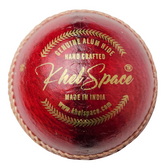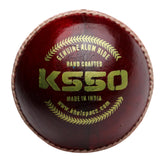The Importance of Hydration: How Much Water Should You Drink According to Your Body Weight?
Introduction: Staying hydrated is essential for maintaining good health and well-being. Water is crucial for various bodily functions, including regulating body temperature, aiding digestion, transporting nutrients, and flushing out waste. While the "8x8 rule" is a commonly known guideline for water intake, understanding how much water you should drink based on your body weight can provide a more personalized approach. In this blog, we will explore the importance of hydration and delve into the recommended water intake based on body weight.

The 8x8 Rule: Before we delve into the specifics of water intake based on body weight, let's briefly touch upon the widely known 8x8 rule. This rule suggests drinking eight 8-ounce glasses of water per day, which roughly amounts to 2 liters or half a gallon. While this guideline can serve as a general benchmark, it may not be suitable for everyone due to individual variations.
Personalized Approach: Water Intake Based on Body Weight: One approach to determining your optimal water intake is considering your body weight. The general recommendation is to consume approximately 0.5 to 1 ounce (or 15 to 30 milliliters) of water per pound of body weight. This range can help provide a more personalized estimate.
Let's illustrate this with an example: If you weigh 150 pounds, you would aim to drink between 75 and 150 ounces (2.2 to 4.4 liters) of water per day. This range allows for flexibility, accounting for individual differences in metabolism, activity levels, climate, and overall health.
Let's go through a couple of examples to better illustrate how water intake based on body weight can be applied in real-life scenarios:
Example 1: Sarah weighs 120 pounds. According to the recommended range of 0.5 to 1 ounce per pound of body weight, Sarah's daily water intake would range from 60 to 120 ounces (1.8 to 3.5 liters). Considering she leads an active lifestyle and lives in a hot climate, she may lean toward the higher end of the range to account for increased fluid loss through sweating.
Example 2: John weighs 200 pounds. Following the same recommended range, John's water intake would range from 100 to 200 ounces (2.9 to 5.9 liters) per day. However, John has a sedentary lifestyle and works in an air-conditioned environment. Therefore, he might opt for a slightly lower intake within the range, around 100 to 150 ounces (2.9 to 4.4 liters) daily.
These examples demonstrate how the range of water intake based on body weight provides flexibility to adapt to individual circumstances. It's important to consider factors like physical activity, climate, and personal habits to determine the specific amount within the range that suits an individual's needs.
Let's take one more example:
Example 3: Lisa is pregnant and weighs 140 pounds. During pregnancy, additional fluids are required to support both the mother's hydration and the growing baby's needs. Lisa's healthcare provider advises her to consume around 80 to 120 ounces (2.4 to 3.5 liters) of water per day. This higher range helps ensure proper hydration for both Lisa and her developing baby.
These examples emphasize the importance of considering individual variations and consulting with healthcare professionals for specific circumstances. Personal factors such as activity level, climate, and life stages like pregnancy or breastfeeding can influence water needs and require adjustments within the recommended ranges.
Remember, it's crucial to listen to your body, stay mindful of your thirst, and make adjustments as needed to maintain optimal hydration.
Factors Affecting Water Needs: While body weight provides a useful starting point, it's important to consider other factors that may influence your water needs. Here are a few key factors to keep in mind:
-
Physical Activity: Engaging in physical activities, especially intense workouts or exercising in hot weather, increases fluid loss through sweat. It's crucial to replenish lost fluids by drinking additional water.
-
Climate: Hot and humid climates can cause increased sweating, leading to higher water requirements. On the other hand, in colder environments, our bodies may not signal thirst as strongly, making it important to consciously maintain hydration.
-
Overall Health: Certain medical conditions, such as kidney problems or urinary tract issues, may require adjustments in water intake. It's essential to consult a healthcare professional if you have specific health concerns.
-
Pregnancy and Breastfeeding: Pregnant and breastfeeding individuals require additional fluids to support their own hydration as well as the needs of their developing baby or infant. Consultation with a healthcare provider is crucial for personalized recommendations.
-
Individual Variations: Each person's body is unique, and some individuals may naturally have higher or lower water needs than others. Listening to your body's signals for thirst and staying adequately hydrated is key.
Tips for Staying Hydrated: Meeting your daily water intake goals can be made easier with these practical tips:
-
Carry a reusable water bottle: Having a water bottle with you throughout the day serves as a reminder to drink and makes it convenient to stay hydrated wherever you go.
-
Set reminders: Use alarms or smartphone apps to remind yourself to drink water at regular intervals, especially if you tend to forget.
-
Opt for water-rich foods: Include fruits and vegetables with high water content, such as watermelon, cucumber, and oranges, in your diet. These not only provide hydration but also offer additional nutrients.
-
Drink water before, during, and after exercise: Stay hydrated during physical activities by drinking water before, during breaks, and after workouts to replenish lost fluids.
-
Listen to your body: Pay attention to signs of thirst and prioritize drinking water when you feel dehydrated. Additionally, monitor the color of your urine; pale yellow or clear urine indicates good hydration.
Conclusion: Staying properly hydrated is crucial for maintaining optimal health and well-being. While the "8x8 rule" can serve as a general guideline, adjusting your water intake based on your body weight provides a more personalized approach. Remember to consider individual factors such as physical activity, climate, overall health, and pregnancy or breastfeeding. By listening to your body's signals and ensuring an adequate intake of water, you can support your body's functions and promote optimal hydration. Stay hydrated and reap the numerous benefits of proper hydration!
References:
- Mayo Clinic Staff. (2017). Water: How much should you drink every day? Mayo Clinic. Link
- Popkin, B. M., D'Anci, K. E., & Rosenberg, I. H. (2010). Water, hydration, and health. Nutrition reviews, 68(8), 439-458.
- Institute of Medicine. (2004). Dietary reference intakes for water, potassium, sodium, chloride, and sulfate. National Academies Press.
- Armstrong, L. E., Ganio, M. S., Casa, D. J., Lee, E. C., McDermott, B. P., Klau, J. F., ... & Lieberman, H. R. (2012). Mild dehydration affects mood in healthy young women. Journal of Nutrition, 142(2), 382-388.
- American College of Sports Medicine, Sawka, M. N., Burke, L. M., Eichner, E. R., Maughan, R. J., Montain, S. J., & Stachenfeld, N. S. (2007). American College of Sports Medicine position stand. Exercise and fluid replacement. Medicine and Science in Sports and Exercise, 39(2), 377-390.
- Mayo Clinic Staff. (2021). Water: How much should you drink? Health and medical information. Link
- Popkin, B. M., D'Anci, K. E., & Rosenberg, I. H. (2011). Water, hydration, and health. Nutrition reviews, 68(8), 439-458.
- Armstrong, L. E. (2012). Assessing hydration status: the elusive gold standard. Journal of the American College of Nutrition, 31(2), 95-102.
Disclaimer: The information provided in this blog is for educational purposes only and should not be considered as medical advice. It is always recommended to consult with a healthcare professional for personalized recommendations regarding hydration and water intake, especially if you have specific health conditions or concerns. The author and publisher of this blog are not responsible for any misuse of the information presented.








